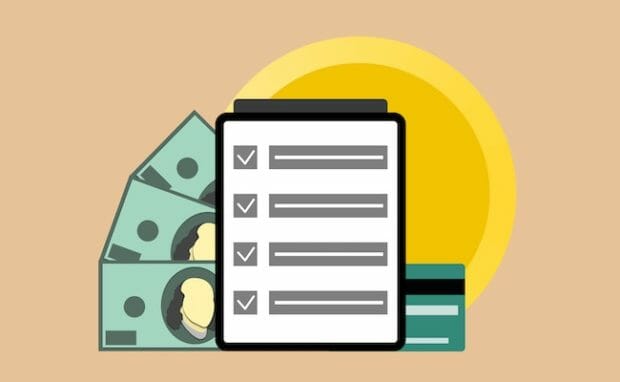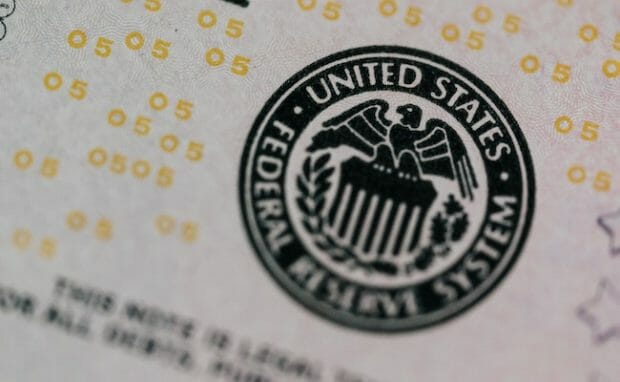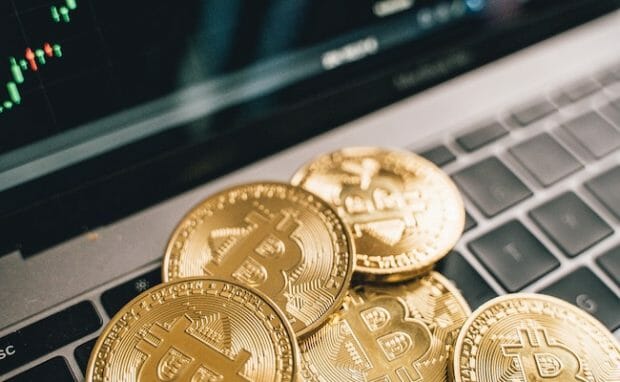How To Protect Your Wallet From Inflation
Factors like the COVID-19 pandemic and the ongoing Ukraine-Russia conflict worsen the global economy. In response, everyone should prepare for an upcoming economic “storm” due to rising inflation. The value of currencies will drop, and the price of necessities will increase.
Stand and watch, and it will quickly deplete your wallet and savings. Fortunately, economists recommend various ways to beat inflation. Even better, this article will explain them in simple terms so that you can apply them immediately.
First, we will talk about investing in certain assets with a high chance of increasing value. Second, we will discuss how you should set aside money for emergencies.
Start building your portfolio.

The typical response to rising prices is setting aside more money and reducing expenses. Unfortunately, these may not work during these uncertain times.
Inflation means everything becomes more expensive, so your money buys fewer goods and services. In other words, cash declines in value as inflation rises.
Placing the funds in a savings account will not help either. Its interest rate will be unable to keep up with the rapid price increase. That is why investors recommend a different way to beat inflation.
They invest in assets that are likely to increase in long-term value. Fortunately, everyone can invest easily, thanks to investment apps. Here are some of the assets that may hedge against inflation:
Stocks
Companies let you buy part-ownership in the form of shares. It helps them build capital for expansion, while investors could earn after selling them for a higher price.
Alternatively, they could receive payments every business quarter called dividends. You must research stocks before purchasing them because some might crash instead.
You should look for the industries that are likely to thrive during inflation. For example, paper company stocks are more likely to appreciate as prices rise.
People would still be able to buy paper products like tissue rolls despite inflation. Yet, stocks also have their downsides. Their value depends on the performance of their related companies.
If businesses stop earning a profit, their shares could decline. Fortunately, you can easily invest nowadays due to smartphone apps like Robinhood, COL Financial, and eToro.
Real estate
You could invest in properties, especially houses. You could buy them at a low price, then sell them as the prices increase. On the other hand, you could turn them into rental properties.
At the time of writing, the Federal Reserve raised interest rates to 2.5%. As a result, mortgage rates increase, making it more difficult to purchase and rent a home.
Fewer homebuyers and renters could spell trouble for real estate investors. If nobody buys or rents their properties, they will not yield profits.
Worse, they will have to continue paying maintenance costs without earnings. Still, housing market conditions may differ depending on your location.
The Philippine housing market continues its free fall in the first quarter of 2022. Condominium and house prices dropped, but inflation and BSP rates increased. As a result, housing demand will likely continue to decline.
You could mitigate risks and boost potential earnings by investing in Real Estate Investment Trusts (REITs). They allow you to invest in numerous properties using a single asset.
For example, Filipino investors may choose REITs from Ayala, Double Dragon, and Robinsons Land. Contact these companies for more information.
Bonds
You can buy debts to earn interest. Companies offer bonds to gain capital from investors. Governments also sell bonds, especially during economic downturns.
Investors recognize them as one of the safest assets available. Specifically, they prefer US Treasury bonds because they can rely on the US government to pay them back.
After all, the US dollar remains the world’s reserve currency. Other countries also offer bonds, such as the Philippines’ treasury bonds. Visit the Bangko Sentral ng Pilipinas (BSP) website for more information.
Unfortunately, bonds sacrifice safety for meager returns. They often pay less money than most investment options. To maximize your returns, you should wait for the maturity period.
However, this means you should not take out your money early. That might not be the best option if you need emergency spending.
Cryptocurrencies
Reading the word “cryptocurrency,” you might have thought of Bitcoin. You can find various news reports of people earning millions from this digital asset, but what is it?
Bitcoin (BTC) came out in 2009 from the mind of Satoshi Nakamoto. It is the first cryptocurrency, and a decentralized computer network called a blockchain operates it. You can even join that network!
Your computer may verify Bitcoin transactions to earn more of that crypto. As a result, you help operate the system while making money. Nowadays, you can easily buy and sell cryptocurrencies.
Coinbase and Binance are the largest crypto exchanges worldwide and offer smartphone apps. Meanwhile, the Philippines has the BSP-regulated crypto exchange PDAX.
You may have heard that the crypto market is bearish nowadays. However, many companies and countries continue to invest in it. For example, Samsung offers a digital blockchain wallet.
The Philippine government is now exploring the use-cases of blockchain technology. Its Department of Science and Technology (DOST) is currently looking into using blockchain for fruit supply chains.
Overall, cryptocurrencies continue to develop even during the bear market. However, it is a fledgling asset that has no extensive track record.
We cannot say for sure that cryptos can hedge against inflation. Although, hyperinflation countries like Venezuela have used Bitcoin for payments instead of their native currency.
More importantly, cryptocurrency is well-known for its volatility. The prices go up and down almost every hour. Even experts find it tricky to predict its long-term price movements.
Save money for an emergency fund.
One issue with investments is that you will likely take years to earn a profit. Your portfolio will not help you if you need to cover daily expenses. That is why you need an emergency fund.
It is another term for savings, so it involves setting aside extra money. However, saving money can become more challenging due to rising prices.
Fortunately, there are various ways you can build an emergency fund to beat inflation. Look at the following steps:
Reduce spending by letting go of unnecessary expenses. For example, you could cancel your Netflix subscription if you already have Amazon Prime Video. Also, you could replace your daily staples with cheaper alternatives.
Boost earnings by working extra jobs. Fortunately, you can find more remote work positions nowadays. Those will allow you to make extra money after your full-time job. You may even have a full-time work-from-home role.
Budgeting apps can facilitate money management, such as Google Wallet. You can find several options for Android and iOS, and you can download most for free.
Activate automatic savings for your bank account. Nowadays, banks allow people to send a portion of their income to their savings accounts. This feature can ensure that you build an emergency fund every payday.
Sell unused items at home to turn a profit. You could feature them on websites like Facebook Marketplace and Etsy to find potential buyers.
Expected effects of global inflation in 2022
Budgeting and investing require you to be more intentional with your finances. You need to control your spending to respond to the unusual economic conditions.
According to surveys, we may soon face a global recession. Several factors increase the risk, such as ever-growing inflation, rising interest rates, and supply chain disruptions.
It also increases the likelihood of hyperinflation in several countries. As the name suggests, it involves extreme price hikes for consumer goods.
One of the most notable cases of hyperinflation occurred in November 1923. Germany’s Weimar Republic paid war reparations for the First World War but could not keep up with the payments.
In response, the government printed more money. It caused an astonishing increase in prices. For example, a loaf of bread cost 250 marks in January 1923.
In November 1923, it became 200,000 million marks! Still, experts believe global hyperinflation is an unlikely scenario. However, you may have noticed skimpflation and shrinkflation.
Skimpflation refers to the decline in the quality of products while retaining their original price. Meanwhile, shrinkflation involves paying the same price but receiving fewer goods.
For instance, your favorite cookies may have undergone skimpflation if it is not as tasty as before. If you received fewer cookies per pack, that is an example of shrinkflation.
Conclusion
Will the global economy continue to worsen as time passes? Perhaps it may improve after several months? We cannot say for sure, so we must prepare.
Prepare your short-term finances by planning a budget. Avoid buying things you do not need, and increase your income. Meanwhile, ensure long-term financial stability by investing in assets.
Note that this article does not provide investment advice. Please consult a financial advisor for professional guidance in building your portfolio.
All writers’ opinions are their own and do not constitute financial advice in any way whatsoever. Nothing published by Inquirer.net constitutes an investment recommendation, nor should any data or Content published by Inquirer.net be relied upon for any investment activities. Usa.inquirer.net strongly recommends that you perform your own independent research and/or speak with a qualified investment professional before making any financial decisions.Frequently asked questions
How do you fight inflation in 2022?
You can beat inflation by purchasing stocks, bonds, and other assets. Moreover, you should save money for an emergency fund to cover unexpected expenses.
Who benefits from inflation?
Lenders usually benefit from inflation. Inflation can harm them since rising prices make it harder for borrowers to repay their loans. As a result, lenders may lose money.
Who generally loses from inflation?
Savers typically lose money from inflation. Their funds do not multiply as rising prices reduce their value. That is why it is advisable to have an investment portfolio.





